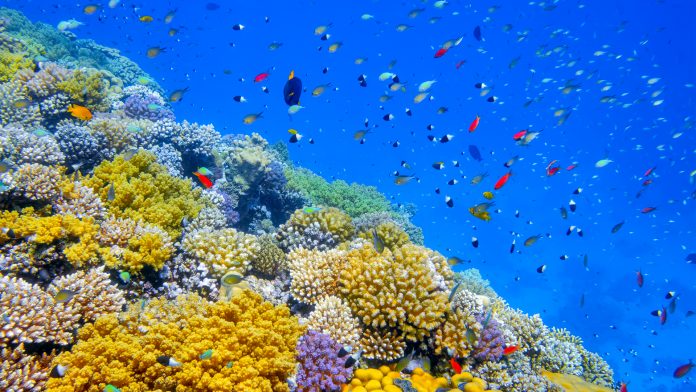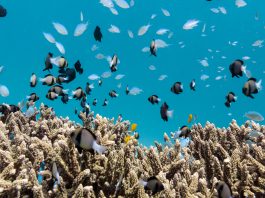A study has revealed that ocean acidification and global warming are having a significant impact on the way fish interact in groups, posing a threat to their survival and seafood supplies.
Ocean acidification and global warming
As global warming becomes more of an issue, marine ecosystems worldwide have shown an increased dominance of warm water species, along with parallel changes in the species composition of fish catches since the 1970s according to a report by the Intergovernmental Panel on Climate Change (IPCC).
“Fisheries from marine ecosystems provide food, nutrition, income and livelihoods for millions of people around the world,” explained the IPCC. “Globally, total fish catches amount to 80 to105 million tonnes annually, generating over $80bn in revenue.”
“Fish show gregarious behaviour and cluster in shoals which helps them to acquire food and protects them against predators,” said Ivan Nagelkerken, author of the study and professor at the University of Adelaide’s Environment Institute and Southern Seas Ecology Laboratories.
The researchers observed how species interacted and behaved in new ways with changing temperature and acidification under controlled laboratory conditions. While warming and acidification are different phenomena, they interact to the detriment of marine ecosystems.
The impact of future climate conditions
The research team discovered that mixed shoals of tropical and temperate species became less cohesive under future climate conditions and showed slower escape responses from potential threats. Which is considered concerning as strong shoal cohesion and coordinated movement, whether to acquire food or evade predators, are important for fish survival.
Nagelkerken concluded: “Species are extending their ranges pole-wards as the oceans warm due to climate change. This process, known as topicalisation of temperate ecosystems, means tropical species are mixing with temperate species and creating novel ecological interactions.
“With changes in the habitats, fishes, and other species due to species range extensions, ecosystem services and fish stocks could be altered as well. Novel species interactions between tropical and temperate species are critical as they mediate the population sizes of these fishes and therefore the functioning of food webs.
“Tropical species will become more abundant in temperate ecosystems, some temperate species less abundant. This changes the type of fisheries, and other species that are present at certain locations, and, therefore, potentially also their catches.
“Altered schooling behaviour by fishes due to climate change and novel species’ interactions can affect their survival and growth rates, and hence can alter their population sizes and, therefore, potentially also their catches.
“Depending on the location and the specific effect of the oscillations, for example, cooling versus warming, they can slow down or exacerbate species range extensions in the short term although in the longer term the effects of climate change are expected to be stronger.”





